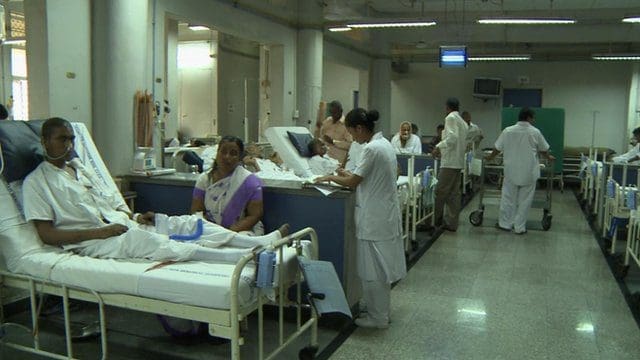
Being a non-kannadiga is the only problem most of us face during our postings. And to take a case, when the only kannadiga in our unit is absent!!
The first department we entered was surgery department at Wenlock hospital. The very first day, we had OT, none of us had our scrubs, except one. He went inside with his scrubs and didn’t come back. Next day was our GC, we went all around the hospital, thrice, searching for GC room and whichever nurse or staff we asked, had no answer.They just shook their head implying that they didn’t know.
And for few days, we did nothing but run behind the Post-Graduates (PG) asking us to teach. They asked us to take a case and we didn’t know what to do. Finally one of the PG’s taught us. We used to fool around and by the end of the day take a case and leave. We were invisible to the eyes of our professors till one day, one of them saw us and asked for the case. We had reached some 10-15 minutes before and sat there chatting. We were asked to present the case or leave. After the professor left we were asked to take a case and apologize. We did as said.

Our first OT… One of us constantly wished that we did not have to see an amputation. The first surgical procedure to witness, was a toe amputation. At first she told me she couldn’t stand and watch. Then she was feeling dizzy, she wanted some water. I asked whether I should accompany her, to which she said no. She was moving out as I turned to see the procedure. I had a sudden urge to turn back. I turned to hear a metallic sound and a thud combined. I turned and saw the stand for hanging iv fluids tilted towards the wall. I looked down and saw her sitting down, with that stand between her legs. Someone said ‘She fainted!’. There was no smile, no giggle, just murmurs.
First thing everyone tried was to remove the stand from her grip. And some of the strong people there took her out. When we saw her again, everyone burst into laughter. “The best thing was that you got that stand between your legs” was a comment. She was embarrassed and said “My mom fainted in OT and dad also fainted in OT, it is there in my genes”. Finally, fainting in OT was an inheritable character.
We saw many ulcers. And some of us came to the conclusion that Mangalore was endemic to ulcers also. And our last case, we had to take on swelling. After a long search and discharge of few patients (whose case we had taken but could not present because they were not there), we got a thyroid swelling- hyperthyroidism case. The only kannadiga in our unit had to remain absent. We managed to ask demographics with little Malayalam mixed conversation. We didn’t know what to ask for eating. One of us showed her hand over her mouth and gulped and then motioned that hand downward her Neck and said “thondare unta?” (any problem while eating-is what she meant). The patient and everyone around burst out laughing. Later we got a patient who knew Kannada and Malayalam to translate and we managed to take the case successfully.
About the Author: Sara Showkath Ali is a second year student at Kasturba Medical College, Mangalore.

Be the first to comment